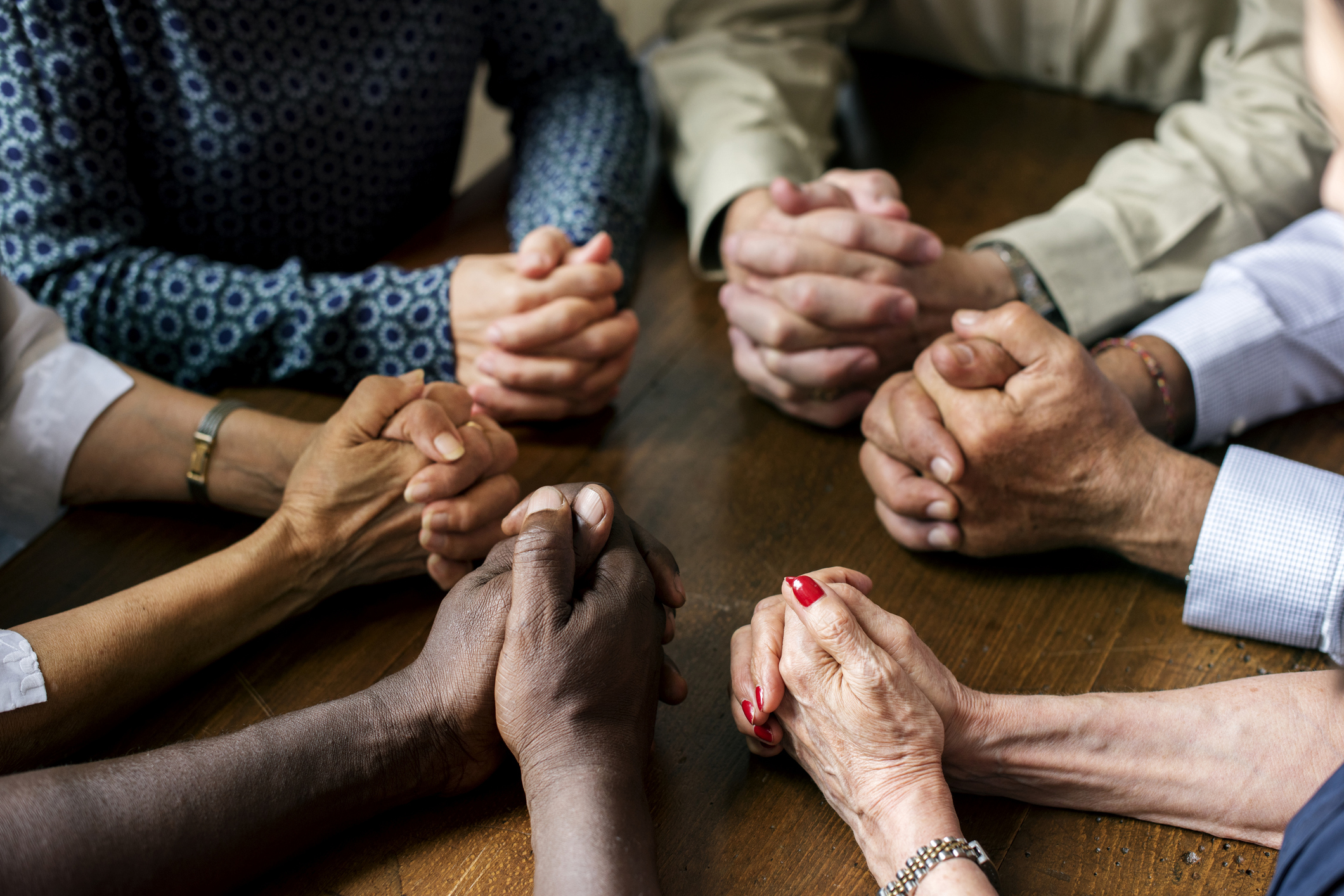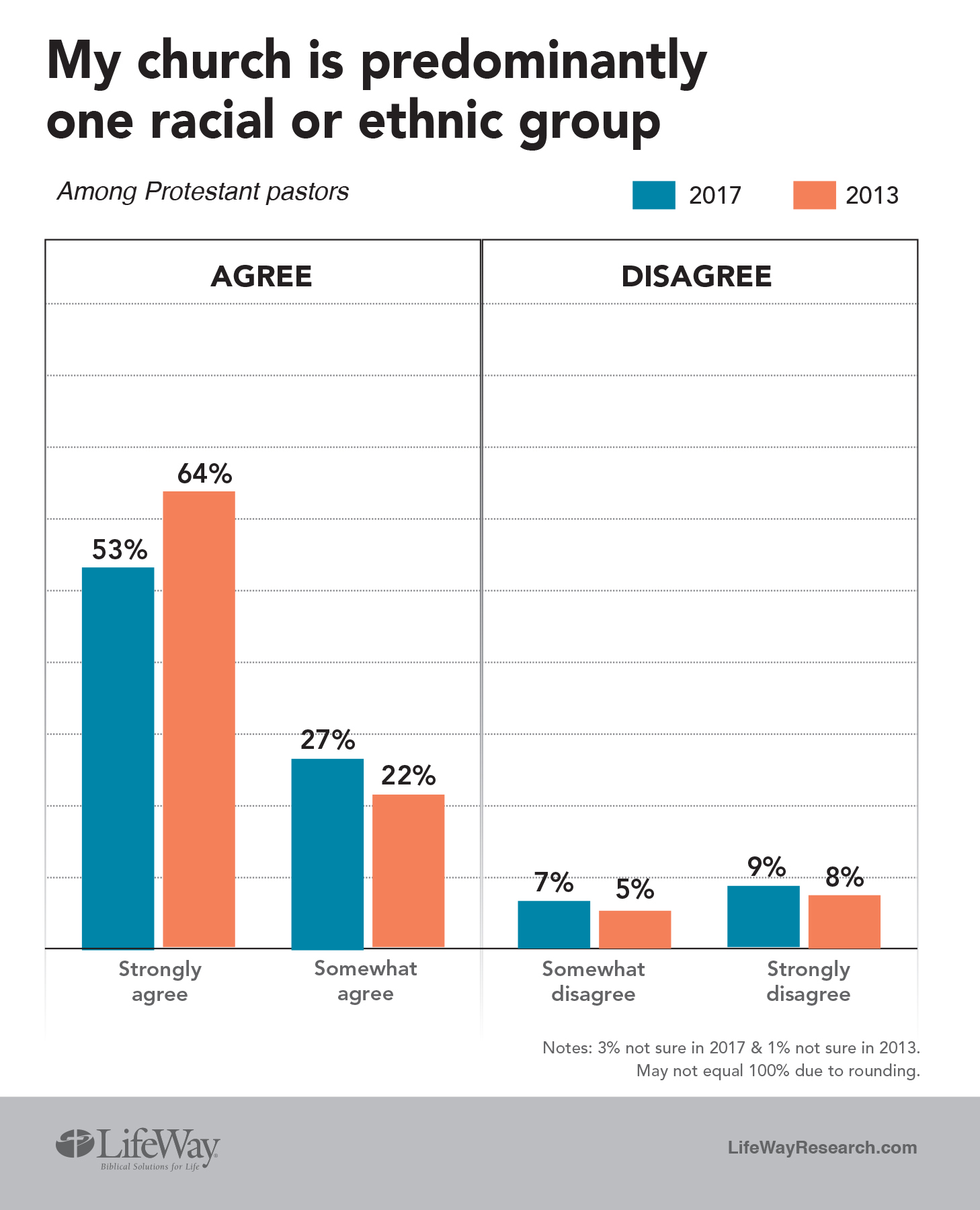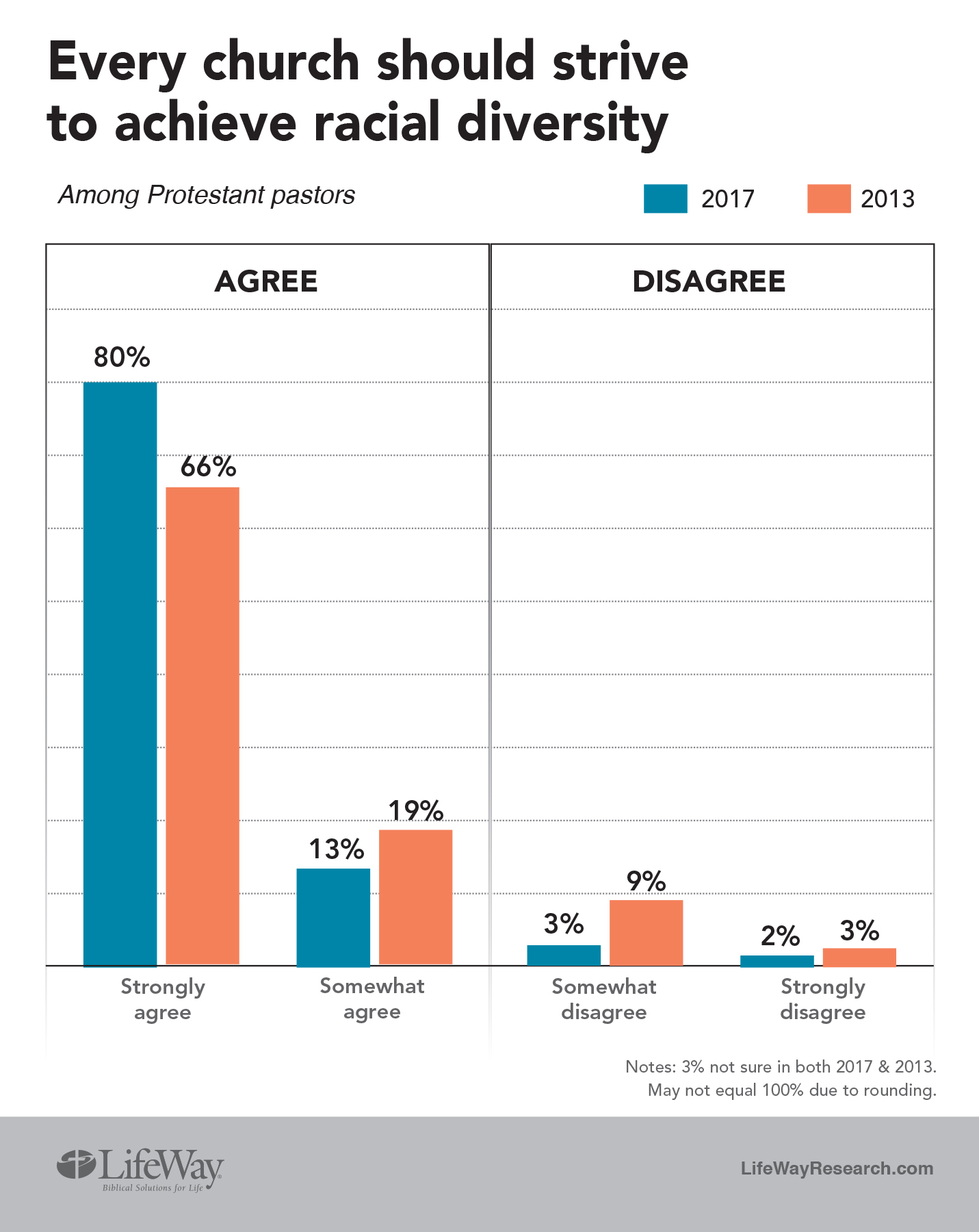
NASHVILLE (BP) — Protestant churches may be a little more diverse these days. And that’s a good thing, their pastors say in a new study released today (March 20).
 Eighty-one percent of Protestant pastors say their congregation is predominantly made up of one racial or ethnic group. That’s down from 86 percent four years ago, according to the study conducted this past Aug. 30-Sept. 18 by LifeWay Research.
Eighty-one percent of Protestant pastors say their congregation is predominantly made up of one racial or ethnic group. That’s down from 86 percent four years ago, according to the study conducted this past Aug. 30-Sept. 18 by LifeWay Research.
It’s a small but significant step, said Scott McConnell, executive director of LifeWay Research, in a nation where Sunday mornings often remain segregated.
“Protestant churches are still mostly divided by race,” McConnell said. “But they’re heading in the right direction.”
Pastors want to see diversity
Lifeway Research surveyed 1,000 Protestant pastors last fall about racial diversity in their congregations — and then compared the results to a similar survey in 2013.
In the most recent survey, 93 percent of pastors — including 80 percent who strongly agree — say every church should strive to achieve racial diversity. Four percent disagree. Three percent are not sure.
 Four years earlier, 85 percent of pastors agreed churches should strive for diversity. That included 66 percent who strongly agreed, while 12 percent disagreed and 3 percent weren’t sure.
Four years earlier, 85 percent of pastors agreed churches should strive for diversity. That included 66 percent who strongly agreed, while 12 percent disagreed and 3 percent weren’t sure.
Pastors in the South (96 percent) are more likely than pastors in other regions to say churches should strive for diversity. White pastors (94 percent) are more likely to agree than pastors from other ethnic backgrounds (86 percent), while 88 percent of African American pastors agree churches should strive for diversity. Lutheran pastors are least likely (82 percent) to agree compared to pastors in other denominations.
When it comes to congregation diversity, 81 percent of pastors in the latest survey say their church mostly consists of one racial group. Sixteen percent disagree. Three percent are not sure.
Pastors of larger churches — those with 250 or more attenders — were least likely (74 percent) to say their church is made up mostly of one ethnicity. That jumps to 81 percent for churches with 249 or fewer attenders.
Based on denominational affiliation, Lutheran pastors (89 percent) are most likely to say their church is made up of predominantly one ethnic group. Baptist (81 percent), Presbyterian/Reformed (77 percent) and Pentecostal pastors (68 percent) are less likely.
Not afraid to talk about race
 Racial reconciliation is a fairly common topic for pastors to address, LifeWay Research reports.
Racial reconciliation is a fairly common topic for pastors to address, LifeWay Research reports.
About two-thirds of pastors (63 percent) say they speak about racial reconciliation in sermons or large group messages at least a few times in a year. Thirty-nine percent talk about it several times a year. Nine percent discuss racial reconciliation several times a month, while 14 percent do so about once a month.
For a significant number of Protestant pastors (37 percent), addressing racial reconciliation is not a high priority. Twelve percent address the topic about once a year. About a quarter either rarely (17 percent) or never (4 percent) address racial reconciliation or don’t know (4 percent).
Pastors are likely working on reconciliation in their personal lives, McConnell said. He pointed to a 2016 LifeWay Research survey, which showed most Protestant pastors (57 percent) spent time socializing with neighbors of other ethnicities. More than 7 in 10 (72 percent) had a meal in the previous month with someone of another ethnicity.
But McConnell said it’s not clear that people in the pew will embrace racial reconciliation.
A 2014 LifeWay Research study found two-thirds of American churchgoers felt their church had done enough to become diverse. And fewer than half (40 percent) said their church needed to become more diverse.
More than half of churchgoers disagreed when asked if their church needed to become more ethnically diverse. That included a third who strongly disagreed.
Evangelical churchgoers (71 percent) were most likely to say their church is diverse enough. White churchgoers (37 percent) were least likely to say their church should become more diverse. African Americans (51 percent) and Hispanic-Americans (47 percent) were more likely to say their church needs to be more diverse.
The question of diversity will likely become more pressing for churches in the future, McConnell said. About half of the children under 10 in the United States are ethnic minorities, according to the U.S. Census Bureau.
“Pastors want their congregations to be more diverse — because their communities are more diverse,” McConnell said. “But people in the pews aren’t there yet. There are hard cultural divides to overcome.”
Methodology
The phone survey of 1,000 Protestant pastors was conducted Aug. 30 to Sept. 18, 2017. The calling list was a stratified random sample, drawn from a list of all Protestant churches. Quotas were used for church size. Each interview was conducted with the senior pastor, minister or priest of the church called. Responses were weighted by region to more accurately reflect the population. The completed sample is 1,000 surveys. The sample provides 95 percent confidence that the sampling error does not exceed plus or minus 3.2 percent. Margins of error are higher in subgroups. Comparisons are also made to a telephone survey of 1,007 pastors using the same methodology Sept. 4-19, 2013 and 1000 pastors Sept. 11-18, 2014.
LifeWay Research is a Nashville-based, evangelical research firm that specializes in surveys about faith in culture and matters that affect churches.














